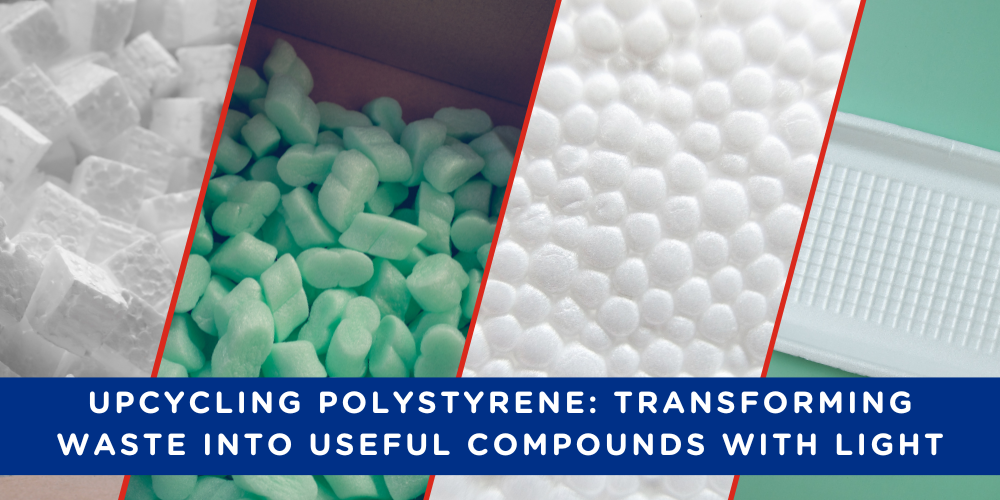IMRE NEWS
Upcycling Polystyrene: Transforming Waste into Useful Compounds with Light
19 Jan 2024

We are all too familiar with the ubiquitous polystyrene, known commonly by its brand name, Styrofoam. This lightweight, insulating material is widely used for food packaging and insulation. However, its disposal poses a significant environmental challenge. But what if we could turn this trash into something valuable? In an article recently published in RSC journal Chemical Science, scientists from A*STAR’s Institute of Materials Research and Engineering (IMRE), in collaboration with researchers from A*STAR’s Institute of High Performance Computing (IHPC) and Institute of Sustainability for Chemicals, Energy And Environment (ISCE2), have found a way to transform polystyrene into useful chemical compounds like benzoic acid, widely used in food preservation and cosmetics, using light energy.
This exciting development involves using a catalyst called acridinium salts, which when exposed to light, helps convert polystyrene to benzoic acid. This is a significant breakthrough as this approach is not only feasible but also effective.
But finding the right catalyst is like finding a needle in a haystack. It usually involves lengthy and costly trial-and-error methods. To expedite this process, the team developed a low-cost computational-based prediction method. They used this to identify a specific, non-intuitive fluorinated acridinium catalyst among many possibilities. This catalyst proved to be highly efficient at low catalytic loadings to successfully transform polystyrene into benzoic acid under very mild conditions.
What's even better is that this catalyst is not picky. It works effectively even with real-life polystyrene waste, which often contains dyes and additives.
"This research demostrated the transformative potential of computationally-assisted catalyst design in repurposing polystyrene waste into beneficial chemical compounds. It underscores the potential of integrating computational methods with experimental science to expedite catalyst discovery, thereby transforming waste management into a value-addition process and propelling us towards a more resource-efficient society," said, Dr Jason Lim, Head of the Advanced Biomaterials department at IMRE, who is a co-lead of this study.
This promising approach underscores the immense potential of computer-designed catalysts in revolutionising plastic upcycling into essential chemicals, and can be potentially applied to develop high performing catalysts for other sustainable applications.
A*STAR celebrates International Women's Day

From groundbreaking discoveries to cutting-edge research, our researchers are empowering the next generation of female science, technology, engineering and mathematics (STEM) leaders.
Get inspired by our #WomeninSTEM
.png?sfvrsn=b59474e9_3)